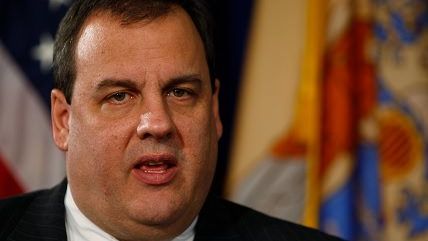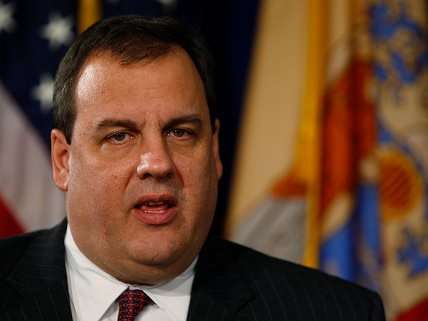Chris Christie and the Perils of Power
A wise citizenry would take this episode as a warning about the dangers of ceding control over our lives to the government.


Many Americans might have learned from watching Chris Christie's marathon news conference on Thursday, but none more than Meryl Streep. If there is anything she doesn't know about acting, the governor of New Jersey is the person who could teach her. No one has ever done a more convincing portrayal of incredulous innocence than his.
It may be that he is far more sinned against than sinning, and that his own motives are so pure that he could never imagine bad intentions on the part of his aides. But if he is blameless, then he is also arrogant.
This is the same governor who, when state legislators raised questions about the now-infamous lane closures on the George Washington Bridge, snorted that "it just shows you they really have nothing to do." In December, however, bridge workers testifying under subpoena before a legislative committee said the closures were "unprecedented" and "wrong."
That happened a month ago. The closures happened four months ago. But not until the past few days did Christie show any curiosity about actions that caused nightmarish traffic jams for his constituents over four days.
The message Christie sent was that it was beneath him to consider the possibility that members of his administration might misuse their positions. Either he was unjustifiably certain that the charges were baseless then, or he is dissembling now. Neither makes him look good.
I don't mean to sound cynical, even when events invite it. Some people go into politics for wholesome reasons, and Christie may be one of them. He's not accused of using his office to get rich. He made his name as a prosecutor going after public corruption.
He certainly didn't enter politics to poll-test every utterance, for fear of being voted out of office. His blunt and sometimes caustic candor suggests that he has real convictions he wants to advance.
But just because he may think in terms of the public good doesn't mean everyone around him does. Many people seek power, or proximity to power, merely because they like exercising control over others or punishing their enemies. Some of those close to Christie got obvious pleasure in petty revenge.
It's not enough for officeholders to be upright. They also have to choose associates who can resist temptation. A governor who is oblivious to potential abuses by his staff is like a dog owner who lets his Rottweiler loose on a kindergarten playground. Maybe nothing will happen, but it's irresponsible to take the chance.
A worse possibility is that Christie was not exactly heedless of such behavior but encouraged it. Given his fervent denials, it's hard to believe evidence will emerge that he approved the lane closing. But it's also hard to believe that his aides went rogue, doing things they knew he would abhor. Christie doesn't seem like the kind of boss whose tolerance for mischief you would want to test.
They have some reason to think he's happy to seek revenge on political opponents. Journalists have documented numerous acts of retribution—such as stripping funding for a Rutgers professor who, as a member of a redistricting commission, voted against a plan the governor wanted. Christie does not have a thick skin when it comes to dissent.
He often gives the impression that the authority granted him by voters is his to use however vigorously and aggressively he sees fit. Elected officials ought to treat it as a conditional loan, to be exercised with great care and humility. Christie's full-throttle approach encourages abuse.
It's our good fortune that modern technology makes it easier to document such abuse, at least when committed by people too careless to take obvious precautions.
Had Christie's deputy chief of staff, Bridget Anne Kelly, whispered, "Time for some traffic problems in Fort Lee" to Port Authority official David Wildstein as they sat in a Starbucks, she'd still have her job. If he had chortled over kids being late to school on a stroll with a colleague, his amusement would be lost to history.
A wise citizenry would take this episode as a warning about the dangers of ceding control over our lives to the government. Anytime someone wants to expand some power of government, here's what you should assume: Kelly and Wildstein will be the ones exercising it.
